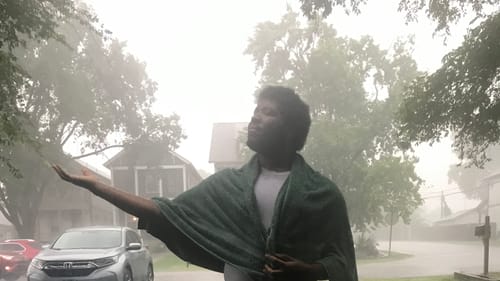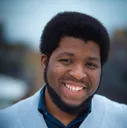Stay in the Loop
BSR publishes on a weekly schedule, with an email newsletter every Wednesday and Thursday morning. There’s no paywall, and subscribing is always free.
Why do you want to amplify my voice?
After years of writing from trauma, I’m choosing joy

A few weeks ago, my therapist gave me an exercise: make a music mix based on my week. Struck with inspired insomnia, in the quiet of the night, I nestled into my workstation at 3am and dug through dozens and dozens of songs. What came together was a 25-minute catharsis that left me joyfully tearful. An uptempo mix layered with complex lyrics and opposing melodies and genres unraveled a kaleidoscope of feelings. The narrative within the catharsis was heavy: I’ve been minimizing my own sense of joy for far too long, especially since last summer.
This isn’t my moment
When police officers killed George Floyd in Minneapolis, the ripples shook up the rest of the world. Protests erupted in Philadelphia, and before long, my phone was blowing up. Texts, DMs, and phone calls by the dozen from peers, colleagues, and friends flooded my notification feed. Many of these peers, colleagues, and friends are white. At first, I was encouraged that anyone was reaching out to me. Before I could process it all, the fatal violence continued. More Black people were killed, and more messages came. Oddly, new opportunities came my way, too.
Outlets wanting to amplify my voice offered me new bylines. Someone I’d looked up to from afar had become a friend and mentor overnight. I won grants, passionately applied for a fellowship to level up my career in journalism, and had folks showering me with affirmations like “Kyle, your writing is so great!” But I don’t think I actually spent that much time having conversations with friends that summer. I was hiding under the awning of a friend’s front porch down in Nashville, so tangled up I didn’t recognize myself. Who am I and where do I fit in the middle of a global pandemic and genocide against my people? Why was I receiving this kind of attention? Was this my “moment”? I sure hoped not.
The requests to “amplify” my voice crystallized into “we need to capitalize on this moment and bring in diverse people.” The compliment showers dripped over complicated wounds. Soon, I was drowning in a tokenized ocean spitefully humming “Part of Your World.”
You want thingamabobs? I've got 20! But who cares?
I don’t want more
Much of what I accomplished in the past year was predicated on trauma and death. That trauma and death was predicated on racism. The racism hasn’t stopped, and the vicious cycle swirls. But the messages and opportunities have stopped, and for that, I am thankful. Wildly enough, opportunity is a double-edged sword where the dark side is the harbinger of death. Fun!
I knew the energy from white Americans would wane—that was an easy call. Summer 2021 has come and gone with a deafening silence. No killings reached the visibility of George Floyd and Breonna Taylor, who became household names at the expense of their lives. Police kill more and more Black people, but citizens are more ruffled by the politics of masks and vaccines.
Legislators and courts are stripping voting and reproductive rights away overnight, and schools are forcing children back into the classroom with problems unresolved. Unemployment benefits halted last week, just as the remains of Hurricane Ida flooded the northeast. But I guess all is good, because the former US president is too busy eating leftover McDonald’s at Mar-a-Lago to be anyone’s scapegoat, and it’ll be a long time before white Americans collectively blame themselves for where we are. I’m done waiting for another name and hashtag to trend on Twitter, and I’m certainly done writing about it.

No more working against myself
I began thinking about this essay when I noticed how racially homogenous (read: white) the 2021 Fringe Festival is. But then I realized I don’t care, or perhaps, I’m actively choosing not to care. I’m exhausted trying to finagle my way into places where I’m excluded. I’m far more interested in participating and contributing in places where I’m included. I’ve been working against myself to appease people who only come around when my siblings die, and that’s a lot to unpack. (Thank goodness for therapy.)
It's been a struggle for me to write over the last 18 months. From using parody to patch inflamed wounds from years of racist microaggressions, to reviewing a play whose meta-reality shifted me as a Black writer while simultaneously making me painfully uncomfortable, I haven’t been measured or voluble. This has come as a blessing because it forced me to find measurement elsewhere: through other creative outlets, spending time intentionally doing nothing, and protecting myself by becoming extremely picky about where and with whom I spend my time intentionally doing something.
Right now, that something is making myself more available for loved ones. That something is courageously making and sharing music projects I was hiding, and receiving inspiring feedback. It’s jumping into friends’ livestreams. It’s investing in my podcast. It’s carving out time for the massive queue of graphic novels, magazines, and memoirs piling up on my tables, shelves, and iPad. It’s practicing my Japanese. It’s recognizing what I want to do, not what I think I should be doing. It’s being intentionally still in the water—whether in a river or the rain or the shower. That something is not seeking space in places I don’t belong, but curating space for myself and others like me.
A love letter to my choice
This isn’t a “fuck you” letter to people who go out of their way to exclude or consume Black trauma (either passively or actively, it’s all the same). Instead, it’s more of a love letter where I declare that I choose joy over everything. Joy is something I haven’t made enough space for because I haven’t known how to, let alone known it was possible. Choosing joy does not mean ignoring the frightful, the harmful—the bad. Choosing joy is understanding the need for balance and pursuing self-awareness through means that include safety and inclusivity as a way to combat the bad.
Choosing joy is choosing to heal, recover, and restore. Choosing joy is an art, a pirouette against the flurry of never-ending madness that has us spiraling into the world's end. Even then, I will find rebellious joy, because I will know in the end that I spent the time I could in the spaces that welcomed me, that loved me, that saw me for who I was: a person who simply wants to be.
Sign up for our newsletter
All of the week's new articles, all in one place. Sign up for the free weekly BSR newsletters, and don't miss a conversation.

 Kyle V. Hiller
Kyle V. Hiller